Christian Anderson
Christian Anderson is based in Seattle, Washington. His work focuses on place-based forms of knowledge, narration, routine practice, and cooperation. He’s interested in how these things connect with—and bolster and/or transform—economies, cultures, relationships, formations of power, and durable patterns of living, particularly in urban contexts. He is especially keen to work in the service of priorities identified by community-based groups and organizations who are developing different modes, protocols, and infrastructures for collective study, knowledge sharing, and cooperative mobilization in contexts including anti-displacement campaigns, participatory-municipalist experiments, and climate adaptation.
Christian has a background in human geography and is currently associate professor of Interdisciplinary Social Sciences and Science, Technology, and Society in the School of Interdisciplinary Arts and Sciences at the University of Washington Bothell.
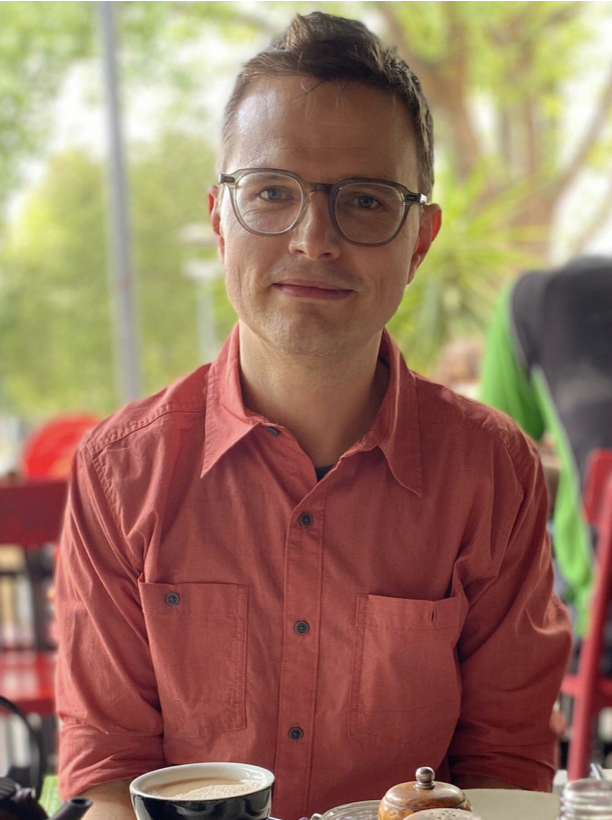
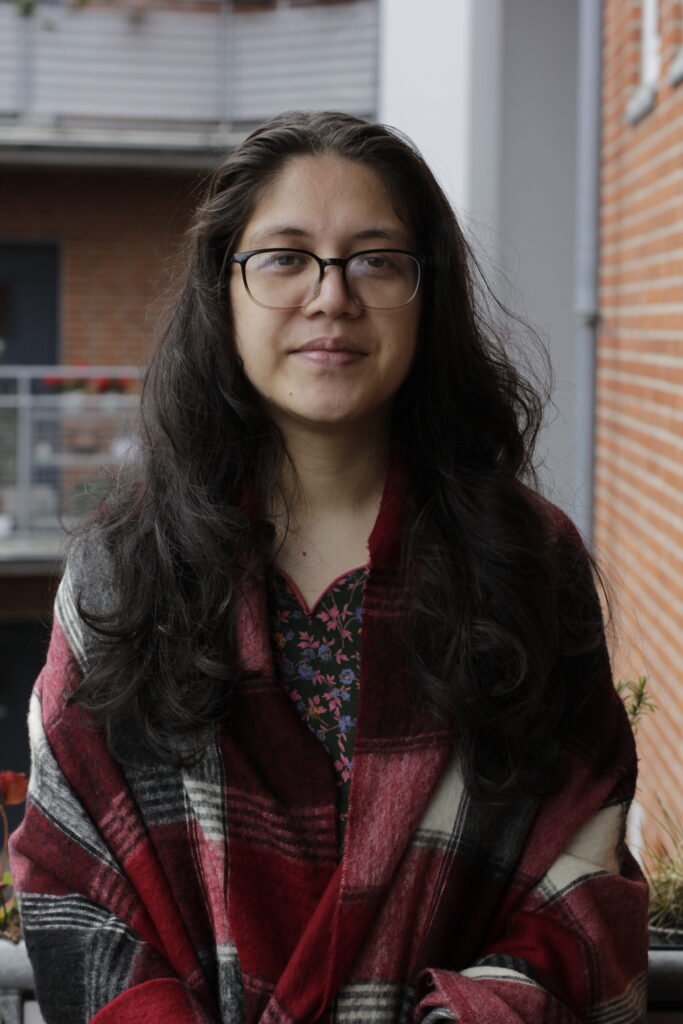
Anisa Bhutia
An anthropologist of place-making and community in South Asia, her research has elaborated on the interconnected histories of the Himalayan region; examines the relationship of infrastructure, colonialism, frontiers; and investigates how the past is imagined and knowledge is constructed by the people to make sense of their present. Through Khache (Tibetan Muslim) community, her work reexamines categories of citizenship, belonging, identity, home etc and her work on Kalimpong engages with the conceptual idea of loss in the frontier spaces. Through the project on migrant workers’ health and AMR drug resistance in the borderland of Nepal and India, Anisa is studying in detail some of the complex ways of making sense of health, diseases, and the processes of providing/accessing healthcare. Through this project, she hopes to engage and expand her ongoing research interest on the Himalayas.
Further, she is interested in developing methodologies that crosses disciplinary boundaries and helps us understand ones research queries. When not writing, Anisa can be found singing songs, clicking photographs and finding creative ways of expressing herself that are not limited to academic writing. If you want to talk about any of the above or just want to say hi, feel free to reach out.
Tianna Bruno
Tianna Bruno is an assistant professor in the Department of Geography at the University of California, Berkeley. Her research focuses on the intersection of Black geographies, critical environmental justice, political ecology, and critical physical geography. Through her work, she aims to foreground Black life, sense of place, and relationships to the environment within spaces of present-day environmental injustice. Her research also highlights the mutual experiences of degradation and survival between subaltern communities and their surrounding ecologies through the integration of Black geographies and critical physical geography, specifically analyzing trees. This research is currently focused on Texas, and will soon expand to various locations across the Black diaspora.
Tianna’s previous work broadly related to environmental justice has been published in Local Environment, Professional Geographer, and the Annals of the American Association of Geography, and a book project currently underway.
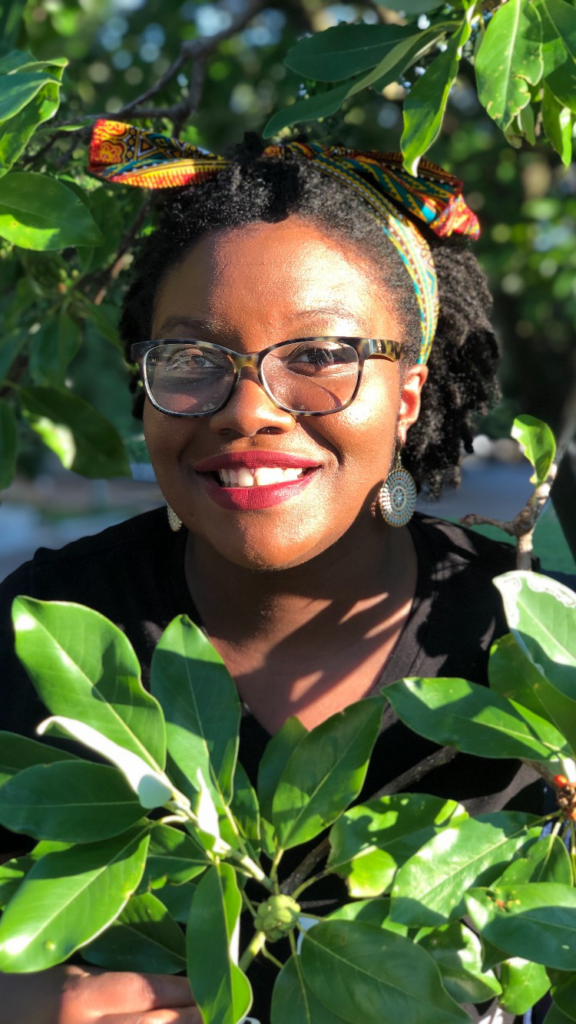
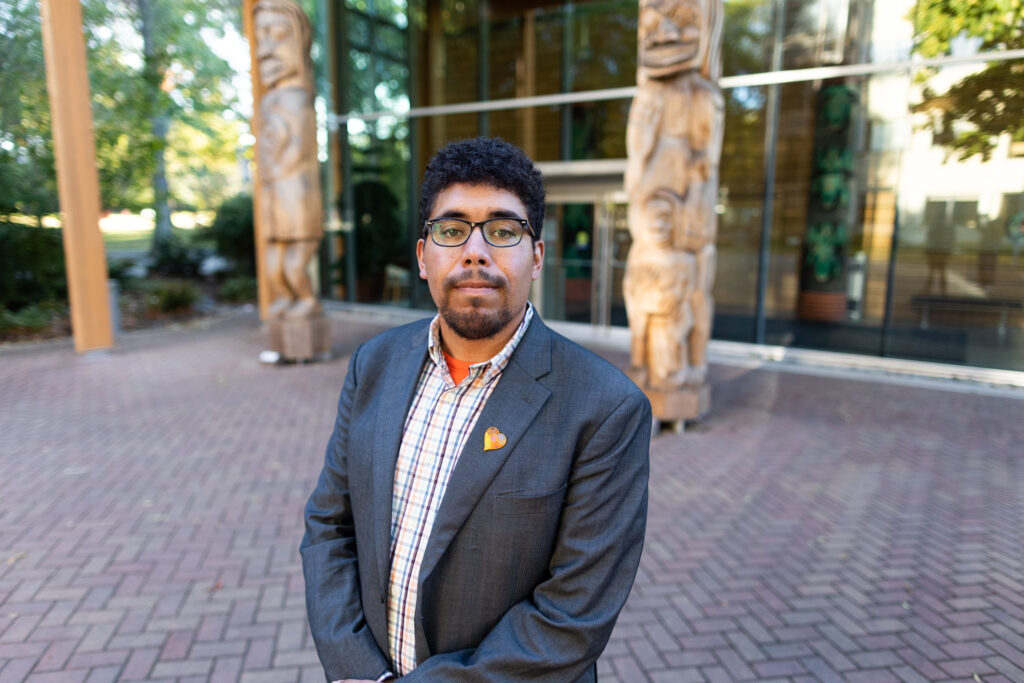
Niiyokamigaabaw Deondre Smiles
Niiyokamigaabaw Deondre Smiles (Leech Lake Band of Ojibwe) is an assistant professor in the Department of Geography at the University of Victoria. Smiles is a critical Indigenous geographer who focuses on Indigenous cultural and ecological responses to climate change. Smiles is the principal investigator of the Geographic Indigenous Futures Collaboratory at UVic, one of Western Canada’s first Indigenous geographies focused labs.
Tara Di Cassio
Tara Di Cassio is a doctoral student in the Department of Geography with a concentration in Political Geography at UNC-Chapel Hill. She is interested in youth political practice, spatiality, and art activism in the Middle East. Her current project examines young Palestinian’s creation of “Wall Art” on the West Bank Separation Barrier. She is also constructing a digital archive and related visualizations of the art on the barrier.
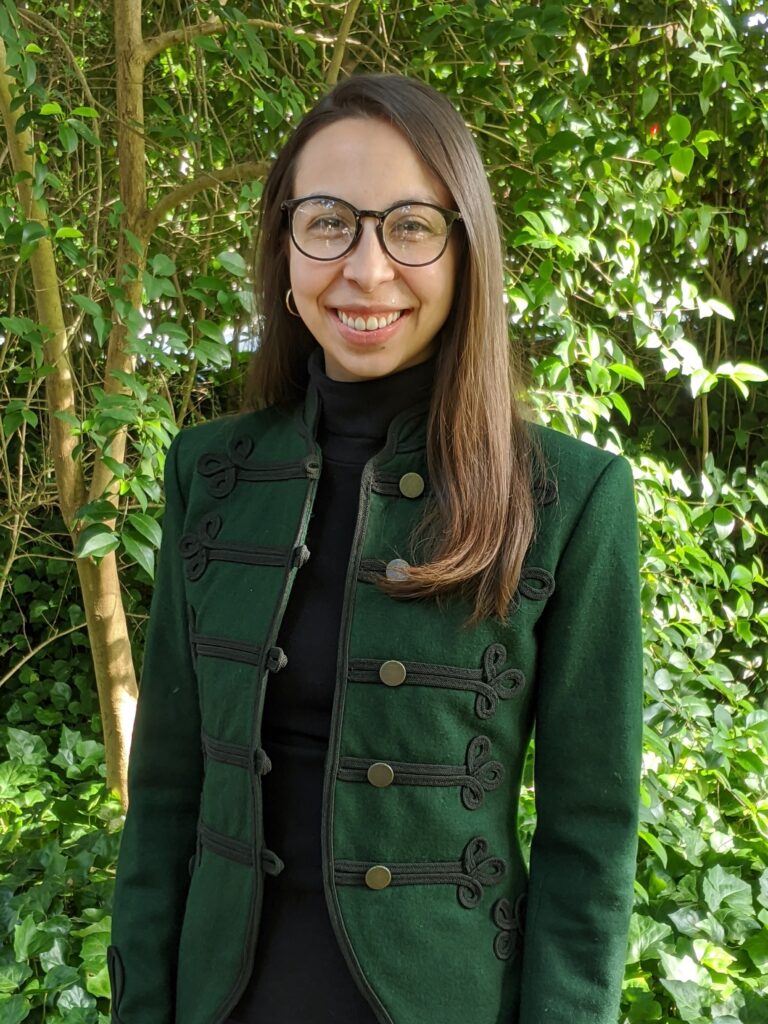
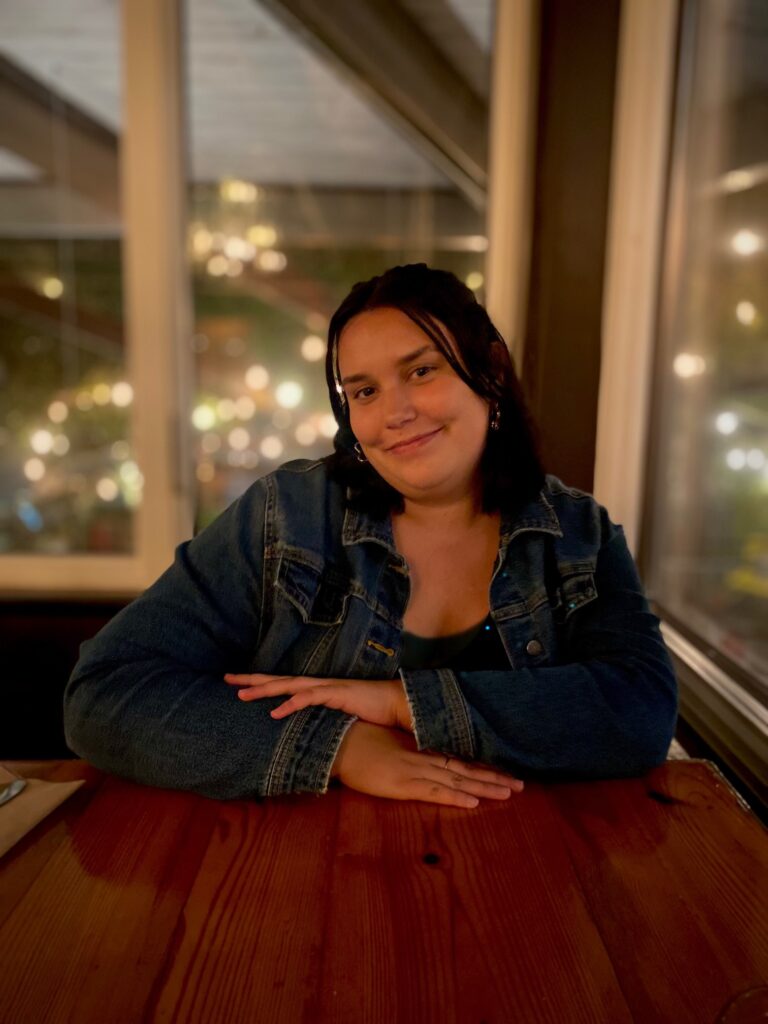
Annie Elledge
Annie Elledge received her B.A. in International Relations & Global Studies and Government from the University of Texas at Austin in 2018. While at UT Austin, she co-founded and co-organized the Feminist Geography Collective, a research group aimed at supporting women of color in Geography. Currently, Annie is a Ph.D. candidate in the Department of Geography and Environment at the University of North Carolina at Chapel Hill working with Dr. Betsy Olson. Her research interests include feminist political geography, critical fat geographies, critical disability studies and geographies of the U.S. South. Annie’s M.A. thesis traced the historical development of Durham, North Carolina as the “Diet Capital of the World.” In her recent publication entitled, “Weight loss, Cure, and Temporality in the ‘Diet Capital of the World’: Disciplining Fatness in Durham, North Carolina,” she brings together crip/queer theory, urban space, and fatness to argue dieting landscapes imagine futures without fat people. Her dissertation research examines the weight-inclusive wellness industry in North Carolina’s Research Triangle emphasizing fat people’s identity formation and place-making practices. Annie is also interested in the capacity for feminist collective building to support women of color within Geography. She co-wrote an interlude with Caroline Faria and Dominica Whitesell on their experiences building and sustaining UT Austin’s Feminist Geography Collective in Feminist Geography Unbound: Intimacy, Territory and Embodied Power.
Carrie Freshour
Carrie Freshour is a Southerner, geographer, and an Assistant Professor in the Department of Geosciences at Georgia State University. Her work focuses on low-wage food and agricultural labor in the US South, racial capitalism, carceral and abolition geographies, and the Black Radical Tradition. She is currently finalizing her book project, Making Life Work, which centers the experiences of Black women, their families and broader place-based communities in northeast Georgia who remain the basis for the global production of cheap chicken.
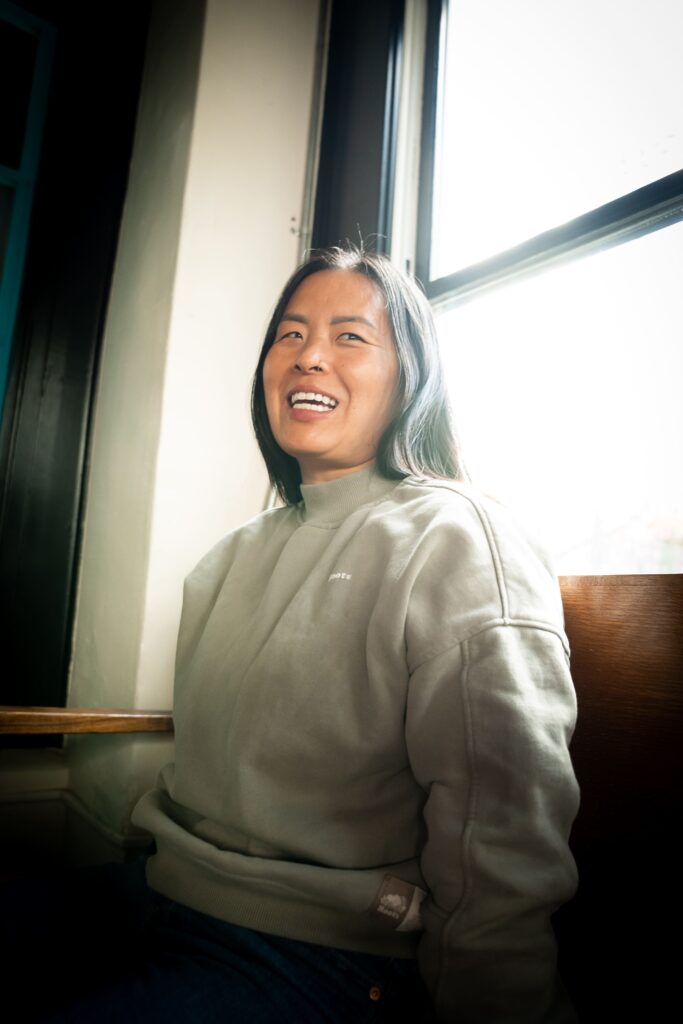
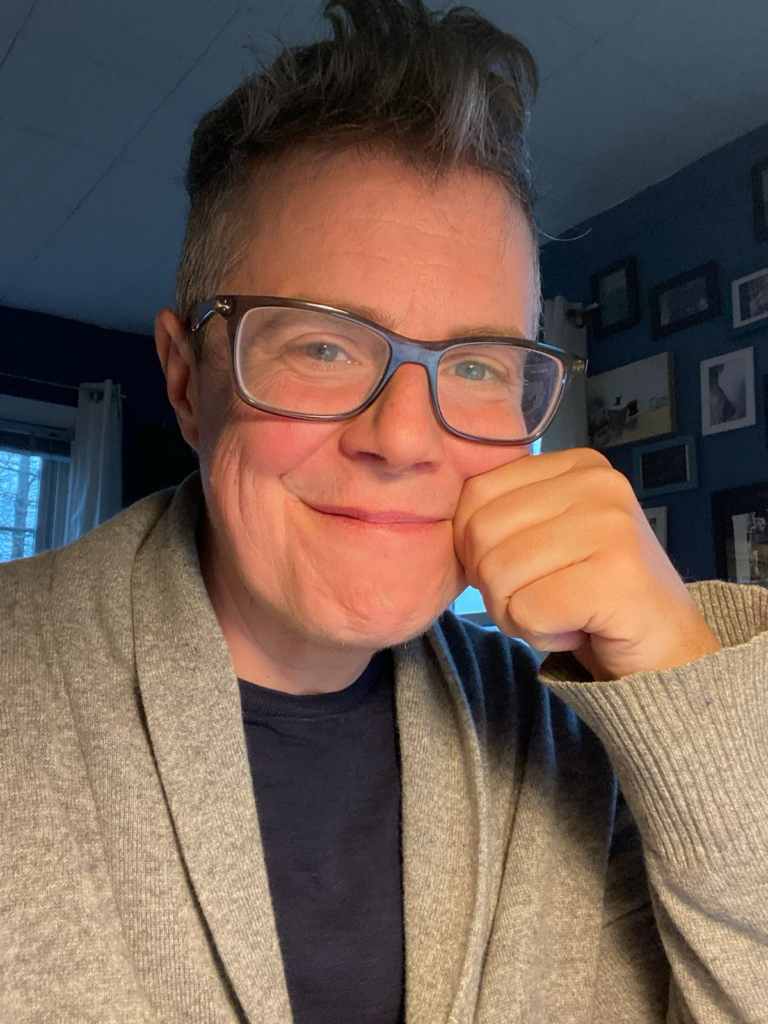
Jack Gieseking
Jack Jen Gieseking is an urban, cultural, and digital geographer, and environmental psychologist. Jack is Research Fellow at the City Institute of York University, and also works with the Department of Geography at Mount Holyoke College. Their first monograph is A Queer New York: Geographies of Lesbians, Dykes, and Queers (NYU Press, 2020), and he is working on their next book, Dyke Bars* Queer Spaces for the End Times, as well a national survey of LBQT*S online dating app experiences at https://linktr.ee/lbqtsdating.
Rachel Goffe
Rachel Goffe is a geographer and architect. Her work is concerned with place-making, and livelihood and examines state formation through the mobility of the boundary around “formal” relationships to land, and space more broadly. She has done research on the encounter between emerging public policy to curtail squatting and Caribbean radical traditions linked to durable yet insecure relationships to land in Jamaica, where she is from originally. Her current projects include building new archives of Caribbean movement histories and investigating how geographies of global cannabis policy shape landscapes of the (il)legal plant. While her work is sited in Jamaica, it aims to intervene in theories regarding Black epistemologies, incomplete enclosure and racial capitalism, social reproduction, and abolition geographies.
Dr. Goffe is an Assistant Professor in the Department of Human Geography (Scarborough) and the Department of Geography and Planning at the University of Toronto.
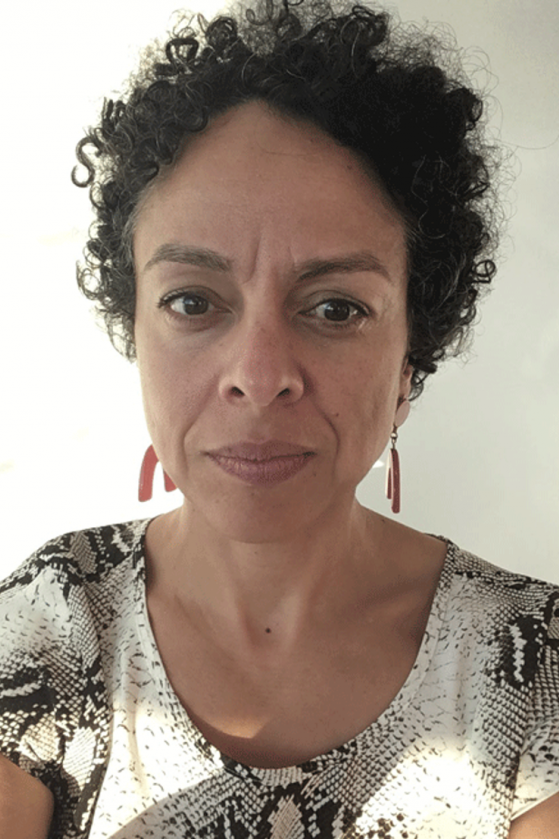
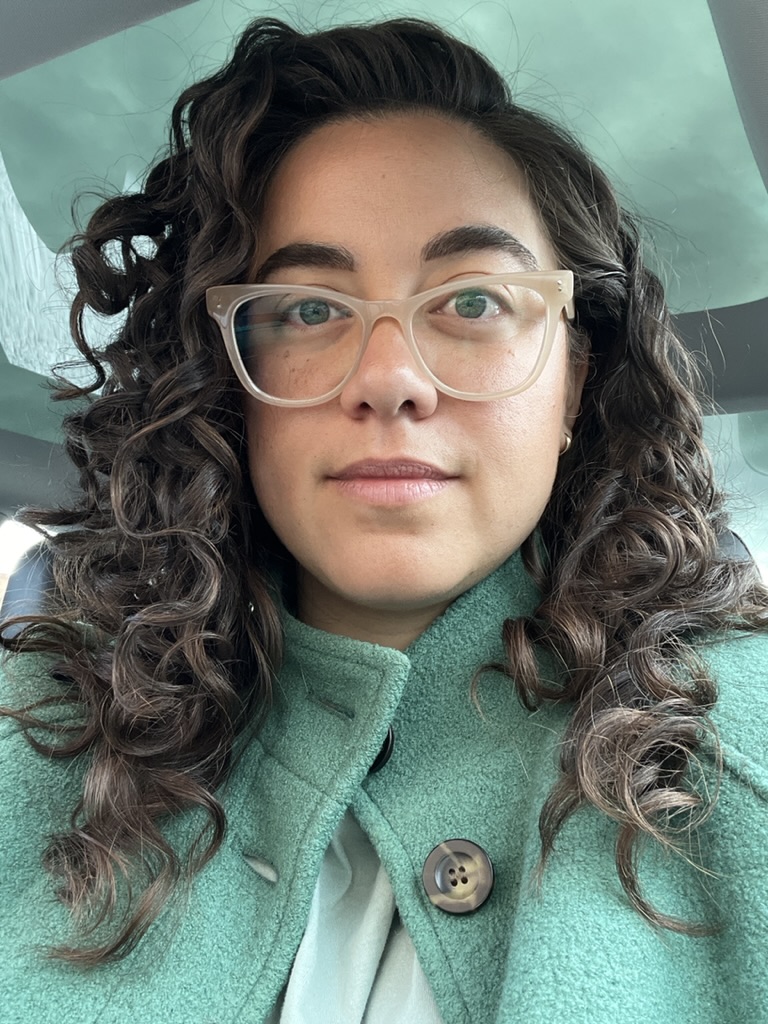
Elspeth Iralu
Elspeth Iralu (Angami Naga) is an Assistant Professor of Indigenous Planning at the University of New Mexico in the Department of Community & Regional Planning. As an Indigenous geographer and planner, her research and teaching focus on Indigenous methodologies, Indigenous space, place, and mapping, and violence and visual culture. Iralu holds a Ph.D. in American studies from the University of New Mexico and a MPH from the University of Minnesota. She was a 2022-2023 Postdoctoral Mellon Fellow at the Stanford Humanities Center. Her work has been supported by the Andrew W. Mellon Foundation, the Russell J. and Dorothy S. Bilinski Foundation, and the Naga American Foundation.
Iralu’s research in global Indigenous politics and Indigenous geographies examines how everyday militarism, enacted transnationally, shapes global colonial relations. Her book-in-progress attends to the theories that undergird spatial data collection and Indigenous mapping and considers how these spatial practices support and inhibit Indigenous self-determination, sovereignty, and spatial justice. Her scholarly writing has appeared in Antipode: A Journal of Radical Geography, The New Americanist, Dialogues in Popular Culture and Pedagogy, Asian Diasporic Visual Culture and the Americas, and American Quarterly. In addition, she serves as an editor as part of the Editorial Collective of the open access journal ACME: An International Journal for Critical Geographies.
Mia Karisa Dawson
Dr. Mia Karisa Dawson is a community organizer, urban geographer, and writer. She is a 2023 recipient of the UCLA Chancellor’s postdoctoral fellowship with the Department of History and the Bunche Center for African American Studies. An alumnus of the UC Davis Geography Graduate Group, she studies geographies of race, property, and policing as they intersect and structure urban space, specifically as they contribute to housing insecurity and incarceration. Her work further engages with the Black Radical Tradition and the contemporary movement for abolition to understand practices of direct action, mutual aid, and self-determination that oppose these structures and represent revolutionary alternatives.
Mia is also a collaborator with the UC Davis Violence Prevention Research Program. In this capacity, she has contributed to the development of community-based violence interruption programs and alternative first response systems. With a background in environmental justice, she has worked with the UC Davis Center for Regional Change to study disparities in air and water quality in rural and urban California and contribute to policy recommendations and interventions. As a co-ordinating committee member and research partner with Decarcerate Sacramento, she contributes to a broad coalition of community organizations across U.S. cities to end policing and incarceration.
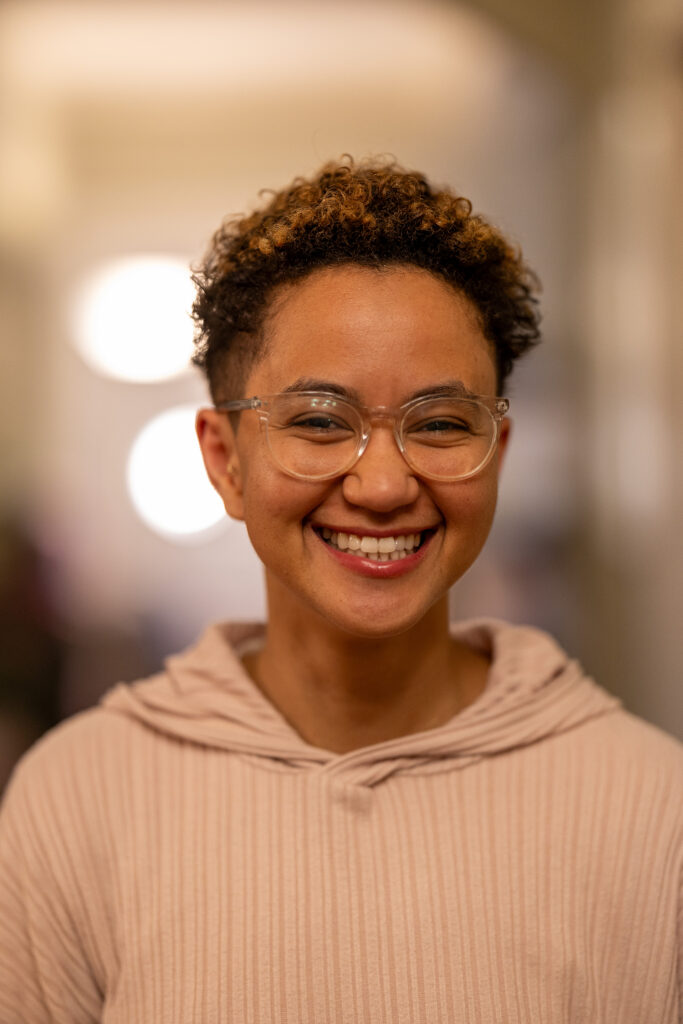
DeWitt King
DeWitt King is a UC Chancellors Postdoctoral Fellow in Department of Film and Media Studies at the University of California, Irvine.
His research broadly examines the relationships between Black geographies, Black culture, formal/informal economies, knowledge production, and critical theories of racialization. His forthcoming book project explores the ways in which meritocracy, deregulation, and labor precarity are animated by anti-Blackness in the professional wrestling industry. In his current research, he examines the disposability of Black athletes in US sporting culture by connecting popular cultural depictions of Black athletes to sport organizational policies, practices and procedures.
He has published in American Quarterly and has working coming out in Environment and Planning D: Space and Society and ACME. Additionally, he has work in preparation that covers a wide topical range including but not limited to Black media ownership, food geographies and sports, digital space and misogynoir, and digital technology and black music.
He received his PhD from the University of Minnesota in American studies, a master’s in media and cultural studies from the University of Wisconsin Madison, and a BA in geography from the University of South Carolina. Prior to coming to UCI, he worked for 6 years in the US public sector.
Hanieh Molana
Hanieh Molana (she/her) is a former competitive swimmer from Kish Island, Iran. Currently, she is Assistant Professor in Geography at California State University, Sacramento. Dr. Molana completed her master’s degree in architecture and environmental studies in 2016 and doctorate in geography in 2020 at Kent State University.
The core emphasis of her work lies on the intersection of feminist geopolitics, gender, resistance, and justice within the Middle East region. Her current project examines the geopolitics of time and temporality through the lens of haunting, memorialization of war, and celebration of certain death in Iran. Her work has been published in journals such as Political Geography, Gender, Place & Culture, Emotion, Space and Society, and The Professional Geographer.
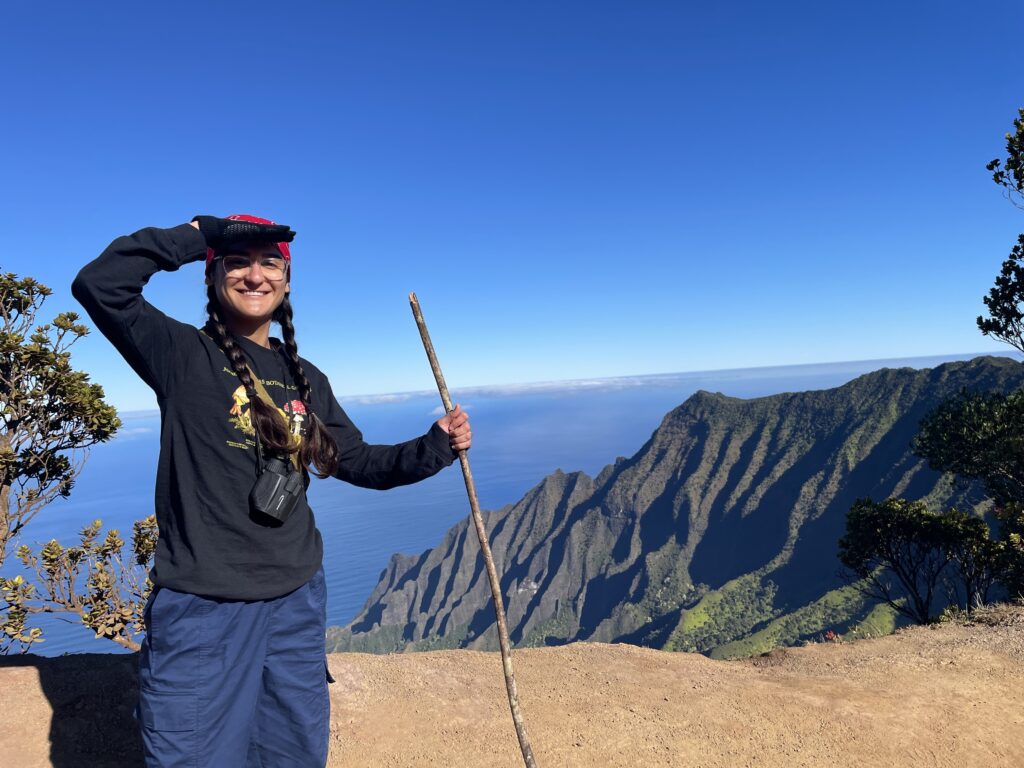
Besides her work, Hanieh enjoys spending time with her friends and family, hiking, swimming, kayaking, bird watching, and daydreaming. Hanieh’s favorite state park is Kokeʻe State Park located in northwestern Kauaʻi in the Hawaiian Islands.
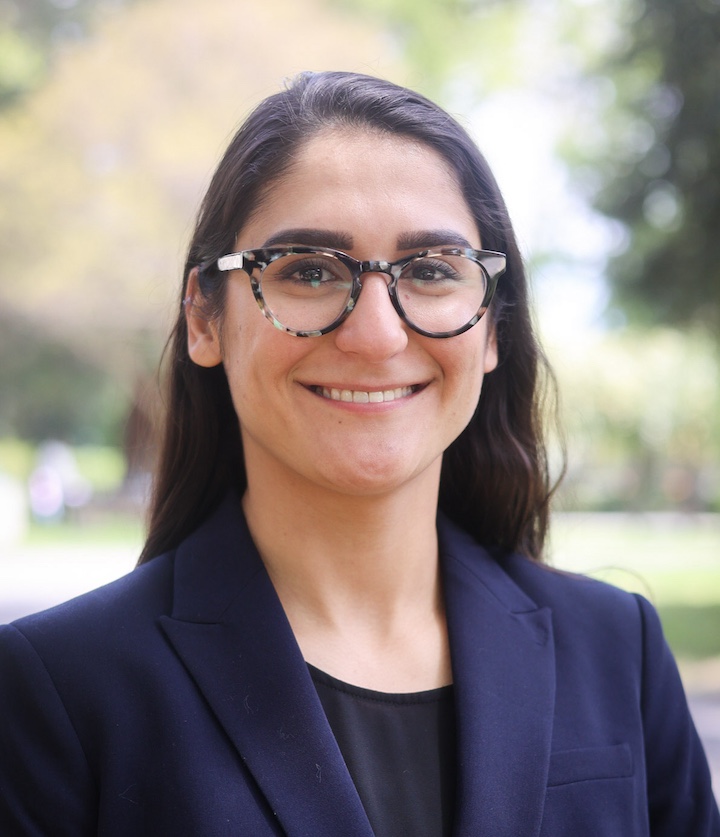
Orlando Ochoa, Jr.
Orlando Ochoa, Jr. is a Ph.D. student in the Department of American Studies at New York University. He is broadly interested in the ecologies, aesthetics, politics, poetics, and affects of desert borderlands. Orlando received his bachelor’s degree in Women’s & Gender Studies and African & African Diaspora Studies from the University of Texas at Austin. Orlando is currently a Graduate Assistant for The Latinx Project at New York University. He was born and raised in the Rio Grande Valley of south Texas.
Neelofer Qadir
Neelofer Qadir is assistant professor of English at the University of North Carolina at Greensboro, where she also holds an affiliate appointment in the Program of African American and African Diaspora Studies. Her current book project, Afrasian Imaginaries: Global Capitalism in Indian Ocean Worlds, examines histories of capitalism, labor migrations, and racialization in Indian Ocean worlds through a literary and cultural archive of twentieth- and twenty-first-century texts. Her scholarship has appeared or is forthcoming in Comparative Literature and Verge: Studies in Global Asia.
In addition to her scholarship and teaching at UNC Greensboro, Qadir is founding co-director of the Ethiopian, East African, and Indian Ocean Research Network (AADS Program). Recent programming of the Network is available on the UNCG AADS YouTube page, go.uncg.edu/IOCurrents
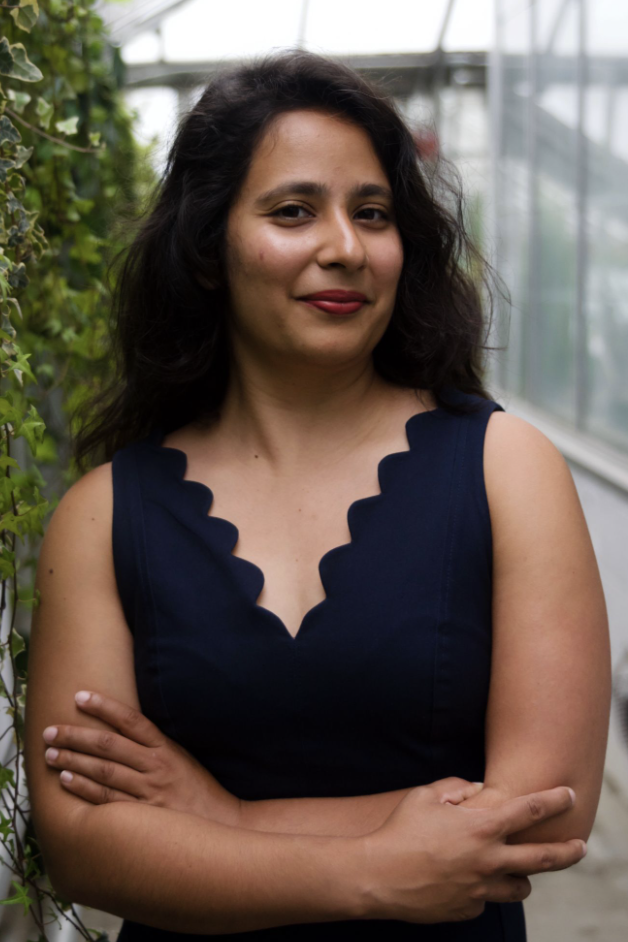
Photo by Biko Caruthers
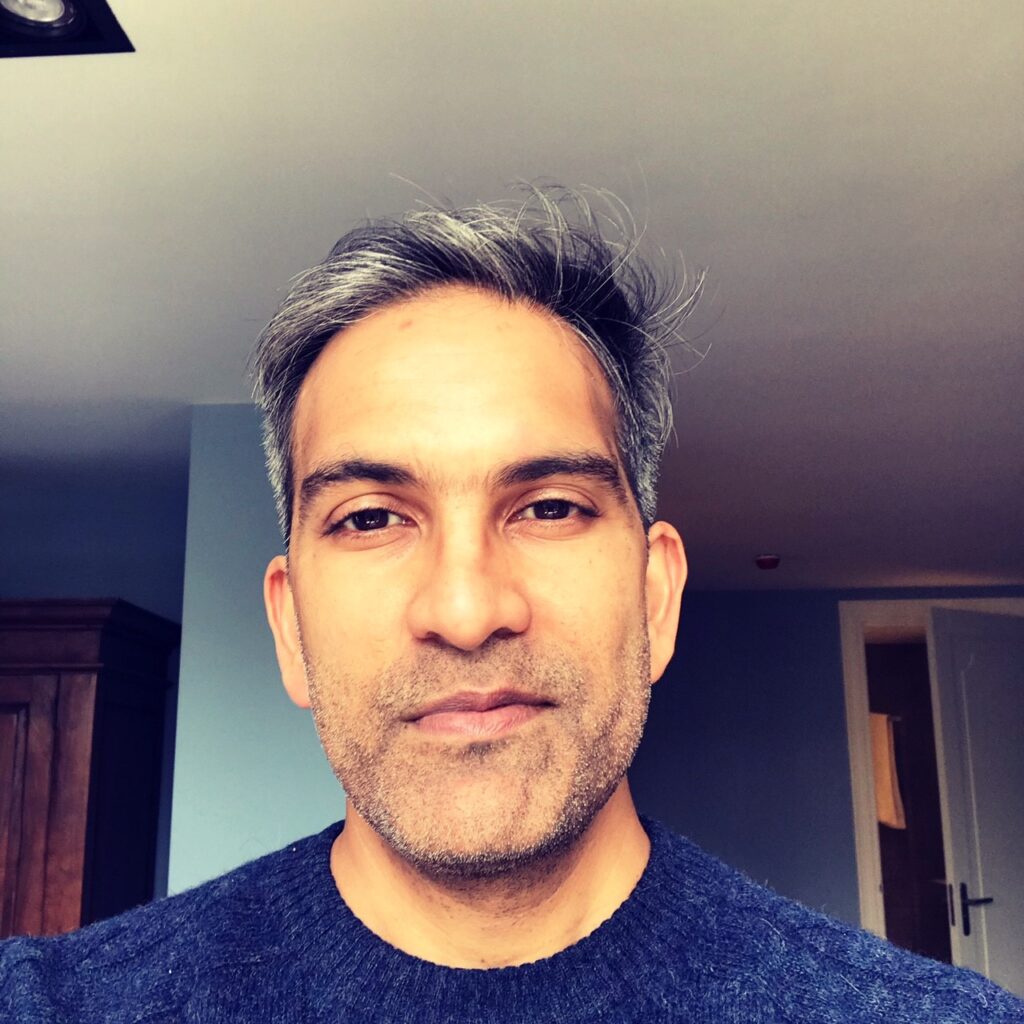
Rahul Rao
Rahul Rao is a Reader in International Political Thought in the School of International Relations, University of St Andrews. He is the author of Out of Time: The Queer Politics of Postcoloniality (2020) and Third World Protest: Between Home and the World (2010). He is currently writing a book on the racial and caste politics of the toppling and construction of statues. He is a member of the Radical Philosophy collective.